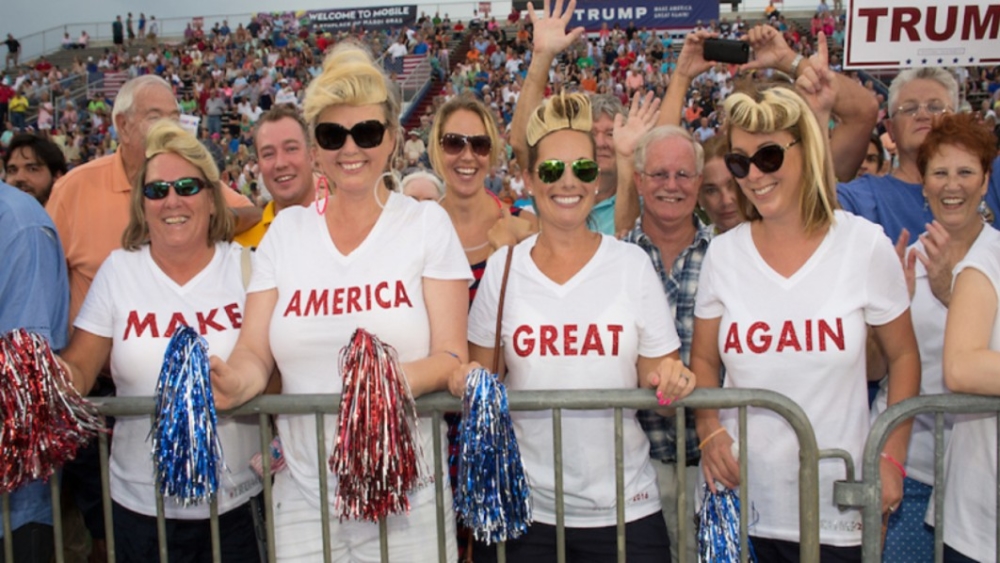Women ruled the US midterm elections, with more women elected to the House of Representatives than ever before.
But on the other side of the ballot box, one influential group of women also stood out for its continued support for President Donald Trump and the Republican Party.
While the number of female voters backing Democrat candidates increased to a new record nationally, the voting bloc labelled “white evangelical women” was still more aligned with Trump and Republicans (as reported by NBC News Exit Polls).
Although white evangelical men and women were less likely to vote for Republican candidates than voted for Trump in 2016, Christian think tank Pew Research Center noted “considerable continuity” between their voting habits this year and in 2014’s midterms.
“They have a deeply religious Vice-President, Mike Pence, quietly working to enact their agenda.” – Dylan Scott
Robert P. Jones, CEO of the Public Religion Research Initiative (PRRI), tweeted this week that white evangelicals make up about 26 per cent of total US voters, despite being only 15 per cent of the population.
This influential voting group continues to back President Trump, even in the face of criticism and scandal, such as sexual assault allegations against Supreme Court Justice Brett Kavanaugh.
There is a simple reason for this, according to Vox’s Dylan Scott: “From their perspective, the Trump administration has been a series of smashing successes on their core issues. ”
“White conservative evangelicals could point to wins across the board — on abortion, on gender identity, on ‘religious freedom,’ and, most importantly, on the Supreme Court — under Trump,” he said.
“Trump’s behaviour is almost beside the point. Instead, they have a deeply religious Vice-President, Mike Pence, quietly working to enact their agenda.”
Evangelicals were found to be more likely to say politics was important to them in a recent study by the Southern Baptists’ LifeWay Research sponsored by the Billy Graham Center at Wheaton College.
“These numbers show evangelicals have a greater passion for politics than most, which could say something about the issues of our day. Some of the biggest political issues today involve evangelicals, which could explain why they are engaged at a higher level than others,” said Ed Stetzer, executive director of the Billy Graham Center told Baptist Press.
The study found that evangelicals still supported the candidate they voted for in 2016 – when President Trump was elected – to a greater extent than other voters.
The party affiliations of evangelicals as reported in the study are broader than the stereotype. Among evangelicals, 44 percent are Republicans, 32 percent Democrats and 14 percent independents. The influence of black evangelicals is seen when comparing these results to reports of the strong ‘white evangelical’ support for President Trump. One in three evangelicals in the US is non-white.
When these non-whites are taken into account the evangelical Trump vote in 2016 falls to 53 per cent.





